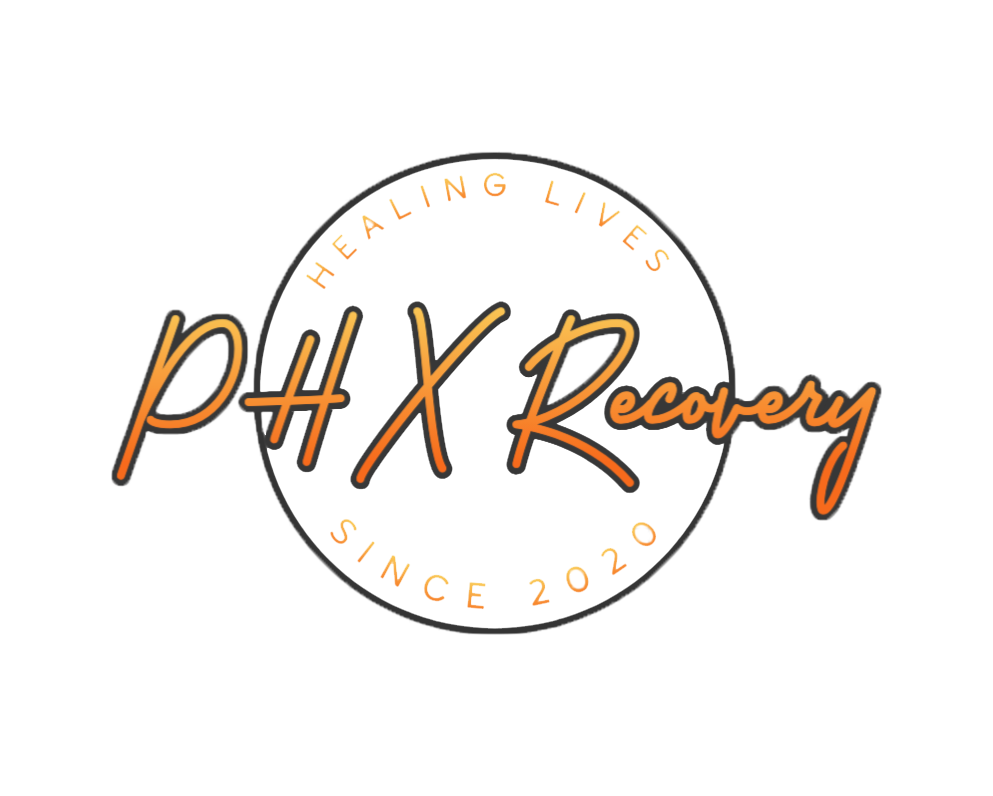What is Transitional Living
Transitional living in Arizona, offered by Phoenix Recovery, is an essential step for individuals who are on the path to recovery from addiction and seeking a new beginning. Our program is designed to bridge the gap between inpatient treatment and returning to everyday life. It provides residents with a supportive, structured environment where they can concentrate on their recovery while gradually reintegrating into society.
Our transitional living homes are situated in serene, residential areas across Arizona, offering a peaceful setting conducive to healing and personal growth. These residences serve as a safe haven where individuals can live alongside peers who share similar experiences and goals. The sense of community and mutual support is pivotal in reinforcing the coping strategies learned during rehabilitation.
Key components of our transitional living program include individual and group therapy sessions, life skills training, employment assistance, and regular drug and alcohol testing to encourage accountability. We emphasize building a solid foundation for long-term sobriety through developing healthy routines, fostering interpersonal relationships, and setting personal goals.
At PHX Recovery, we understand that each individual’s journey is unique. Therefore, our approach is tailored to meet the needs of everyone who walks through our doors. With compassion at the heart of what we do, our dedicated team works tirelessly to support residents as they navigate the challenges of recovery outside the confines of intensive treatment settings.
How Transitional Living Helps Substance Use
Transitional living plays a crucial role in the journey to recovery from substance use disorders. It serves as a bridge between the intensive care provided in treatment facilities and the autonomy of returning to everyday life. Transitional living environments offer individuals recovering from addiction a supportive and structured setting where they can continue to heal while gradually reintegrating into society.
In these settings, residents often benefit from continued therapy and counseling, peer support groups, and educational workshops that focus on relapse prevention, life skills, and employment readiness. The emphasis on community living also encourages accountability and mutual support among residents, fostering a sense of belonging and shared purpose that is vital for long-term recovery.
Moreover, transitional living provides a safe haven free from substances, reducing the risk of relapse by removing immediate temptations and triggers. This controlled environment allows individuals to practice sobriety in real-world scenarios gradually, building confidence in their ability to maintain recovery outside of the facility.
How Transitional Living Helps Mental Health
Transitional living programs serve as a bridge between an inpatient treatment environment and the real world. For individuals recovering from mental health issues, this phase is critical for several reasons. Firstly, it offers a structured yet flexible setting that helps individuals gradually adjust to daily life with less supervision, reducing the risk of relapse into unhealthy behaviors. The emphasis on community living within these programs encourages the development of social skills, fostering connections with others who are on similar paths. This sense of belonging can significantly improve one’s mental health by reducing feelings of isolation and loneliness.
Moreover, transitional living arrangements often provide ongoing therapy and support groups, ensuring that residents have access to professional help while navigating their recovery journey. This continuous care is vital for addressing any underlying or co-occurring mental health conditions effectively. Learning to manage one’s mental health in a supportive environment lays a solid foundation for independence.
FAQ
We've compiled a list of frequently asked questions to provide clarity on the experience and alleviate any remaining fears or anxieties you might have.
A typical day in addiction rehab involves a structured and supportive environment aimed at promoting physical, mental, and emotional healing. Residents typically wake up early for a healthy breakfast before starting their daily schedule of therapy sessions, group activities, and workshops that address the root causes of their addiction. These may include individual counseling, group therapy, family therapy, exercise classes, educational lectures, and recreational activities. The day is also filled with nutritious meals, breaks for reflection and relaxation, and time for personal reflection through journaling or meditation. In the evening, there may be peer support meetings or 12-step programs to participate in before turning in for the night. Each day at our facilities is carefully planned to provide a well-rounded approach to recovery and help individuals establish healthy habits and coping mechanisms.
Typically, a detox period lasts around five days, though it can span from three to 10 days. The duration of detox is individualized, influenced by factors like the substances used, amounts consumed, duration of use, frequency, and method of administration. These factors collectively determine the necessary length of stay for you or your loved one.
Upon entering addiction treatment, there are certain items that are allowed and encouraged to bring for your comfort and well-being. These may include comfortable and appropriate clothing, personal hygiene products, prescription medications (with proper documentation), and journals or books for personal reflection. However, there are also items that are not allowed in addiction treatment facilities. These typically include any substances, such as drugs or alcohol, as well as weapons and anything that may be considered a distraction from the recovery process. Checking with the facility we've chosen in advance for a detailed list of permitted and banned items is crucial to ensure a seamless transition into treatment.
With Drug Abuse and Addiction, we understand that addiction is often closely tied to mental health issues. That's why our centers for drug abuse and addiction also prioritize addressing underlying mental health concerns. Our team of professionals is equipped to provide support and treatment for a variety of mental health disorders, such as depression, anxiety, PTSD, and more. We believe in a holistic approach to recovery, and this includes addressing both physical and mental health needs. Our admissions team is dedicated to finding the right facility that can offer comprehensive care for all your needs, ensuring a successful recovery journey. We are here to support you every step of the way towards lasting sobriety and improved mental well-being.
Our admissions team at Drug Abuse and Addiction is dedicated to helping you discover the ideal treatment center for your requirements. Selecting a rehab center can be daunting, which is why our team is here. We are committed to assisting you in navigating the process and locating the perfect center for you or your loved one. Comprised of caring and knowledgeable professionals, our admissions team comprehends the intricacies of addiction and the significance of selecting the appropriate treatment. We consider your unique needs, preferences, and any co-occurring conditions to match you with a facility that provides tailored care. You do not have to face this alone – our admissions team is committed to aiding you at every stage toward a successful recovery.
Watching a loved one struggle with addiction can be heartbreaking and overwhelming. You may feel helpless and unsure of how to help them. The first step towards getting your loved one the help they need is to have an open and honest conversation with them about their addiction. Express your concern and offer your support, but also set boundaries and encourage them to seek professional help. It may also be helpful to research treatment options with our team and have resources readily available for your loved one.
Remember to remain patient, understanding, and supportive throughout this process – recovery is a journey and it will take time. With the right approach and support, you can help your loved one find the path to a healthier and happier life free from addiction. So don't hesitate to reach out for guidance and support from our team at Drug Abuse and Addiction. We are here to help you and your loved one every step of the way towards recovery.
No matter how dedicated you are to your recovery journey or how determined you are to maintain sobriety for life, there's a possibility of relapse at some stage. Statistics from the National Institute on Drug Abuse indicate relapse rates during recovery range from 40% to 60%. Post-relapse, it's common to feel shame or remorse. You might even contemplate surrendering to addiction rather than persevering to combat the urge to use. While these feelings are normal, they can pose obstacles to achieving a drug-free life. Instead, view a relapse as a learning opportunity; refine your relapse prevention strategy and identify triggers. By delving into the underlying reasons for the relapse, you'll establish a foundation for a recovery that ensures you come back even stronger.
The initial step involves assessing whether revisiting rehab is necessary. If it was an isolated occurrence and you're dedicated to evaluating or adjusting your recovery plan, returning to an inpatient facility may not be essential. This setting provides the patient with hands-on care and ongoing monitoring. However, falling back into a persistent pattern of substance misuse may indicate the need for reentry into a structured treatment regimen. If conversations about substance use arise, socializing with individuals who encourage drinking, or using substances as a coping mechanism resurface, it signals a more significant issue requiring prompt intervention.
Upon reentering treatment post-relapse, the primary focus should be on reintegrating into daily life. Opting for a sober living environment for a few months post-treatment could be the most effective means to prevent relapse, as accountability and structure aid during the initial vulnerable phase. Additionally, having an outpatient therapy plan in place for ongoing support post-rehab is beneficial.
How to get started
We strive to make our services as accessible and affordable as possible. We are proud to say that we accept most major insurance plans, allowing you to utilize your mental health benefits and receive quality care without breaking the bank.
Verify Benefits
CONSULTATION
Schedule a FREE 30 minute CONSULTATION where you can have a chance to meet with a counselor to find out your treatment needs and tour our facility.

EVALUATION
Schedule and complete a drug & alcohol EVALUATION to determine your level of care and appropriate treatment placement.

INTAKE
Schedule an INTAKE appointment once you have received the results from your assessment and begin your treatment program.

Verify Your Insurance With Us
Freeing yourself from Addiction doesn't have to be hard. Take the first Step and begin filling out the form, it's the initial phase in achieving a healthy recovery. We offer the necessary guidance and professional care crucial during the early treatment stages.














